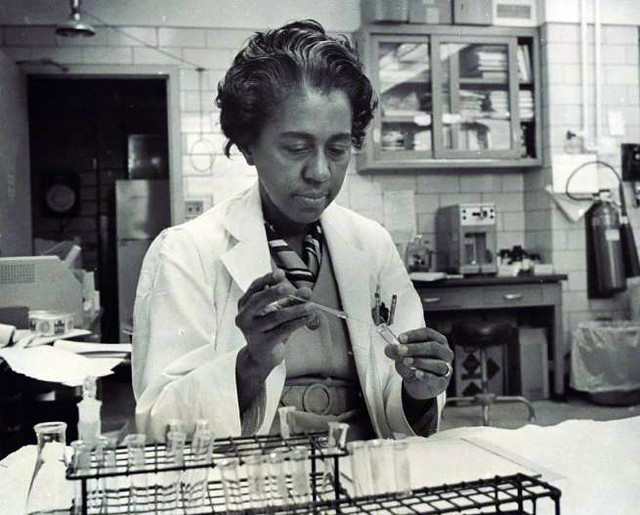
Every 36 seconds, a person dies from heart disease in the United States. Heart disease is the leading cause of the death in America, and in 2017, Black Americans were 20 percent more likely to die from heart disease than non-Hispanic whites. Several medical conditions and lifestyle choices contribute to a higher risk of heart disease such as being overweight or obese and having unhealthy diets. As we recognize American Heart Month and celebrate Black History Month, we’re spotlighting Dr. Marie M. Daly’s contribution to improving American health outcomes through nutrition research.
Dr. Daly, the first Black woman to earn a Chemistry Ph.D. in the U.S., performed groundbreaking research to understand the nexus between nutrition and health measures in people. During her fellowship at Columbia University, Dr. Daly examined the relationship between high cholesterol and clogged arteries. Her work uncovered a new understanding of how our food choices affect our circulatory systems and hearts.
Building on Dr. Daly’s research, USDA science agencies conduct multifaceted, multi-disciplinary research. Our in-house scientists at the Agricultural Research Service (ARS) are leaders in human nutrition research, including food component research, genetics, and epigenetics related to diet and obesity. One ARS developed project features the national resource What We Eat in America, which assesses food-related variables to develop healthy foods for optimal nutrition. Because chronic disease and poor health disproportionately affect minority and low-income groups, the National Institute of Food and Agriculture (NIFA) invests in programs, like the Expanded Food and Nutrition Education Program, that have proven to improve participants’ diets and nutrition practices, stretch their food dollars farther, help them handle food more safely, and increase physical activity for better health.
In addition to pioneering research, Dr. Daly was committed to empowering Black students to enroll in medical school and graduate science programs. Because of her family’s limited access to educational resources, Dr. Daly established a scholarship for Black students majoring in chemistry or physics at Queens College. Similarly, NIFA invests in teaching, research, and extension activities to create the next generation of scientists and nutrition experts to help Americans improve their lifestyle and food choices. For example, NIFA recently awarded more than $14 million to provide scholarships at 1890 land-grant universities – historically black universities that were established under the Second Morrill Act of 1890.
The 1890 Scholarships Program supports recruiting, engaging, retaining, mentoring, and training of undergraduate students at the 1890 land-grant institutions, including Tuskegee University. The scholarships are intended to encourage outstanding students at 1890 institutions to pursue and complete baccalaureate degrees in the food and agricultural sciences and related fields. By developing a diverse, highly skilled workforce, the 1890 Scholarships Program helps facilitate rural prosperity and economic development.
Today, 1 in 7 households in America—and more than 1 in 5 Black and Latino households in America—report that they do not have enough food to eat. This includes 30 million adults and as many as 17 million children.
USDA will continue its efforts to ensure everyone has access to healthy, nutritious foods and to help those needing federal food assistance.
USDA celebrates Dr. Daly. We are inspired by her scientific research and her unyielding efforts to reduce the risk of heart disease through healthy eating habits. For more heart-healthy resources, please visit the National Agriculture Library’s Food and Nutrition Information Center.

